2023/09/27
SAILING TOWARDS A SUSTAINABLE FUTURE
GREEN METHANOL IN MARITIME TRANSPORT
The fight against climate change has led to a constant search for more sustainable alternatives in the maritime transport industry, which significantly contributes to greenhouse gas emissions. In this context, green methanol has emerged as a promising solution, and the Triskelion project is on the verge of marking a milestone in this transition towards greener maritime transport.
The Emissions Challenge in Maritime Transport
Verified data shows that maritime transport accounts for approximately 2.3% of global CO2 emissions. Spain, the European Union, and other parts of the world have set binding targets to reduce greenhouse gas emissions, including that significant 2.3% from maritime transport. These goals include a 55% reduction in emissions for the EU by 2030 and an increase in renewable energy consumption to 32%.
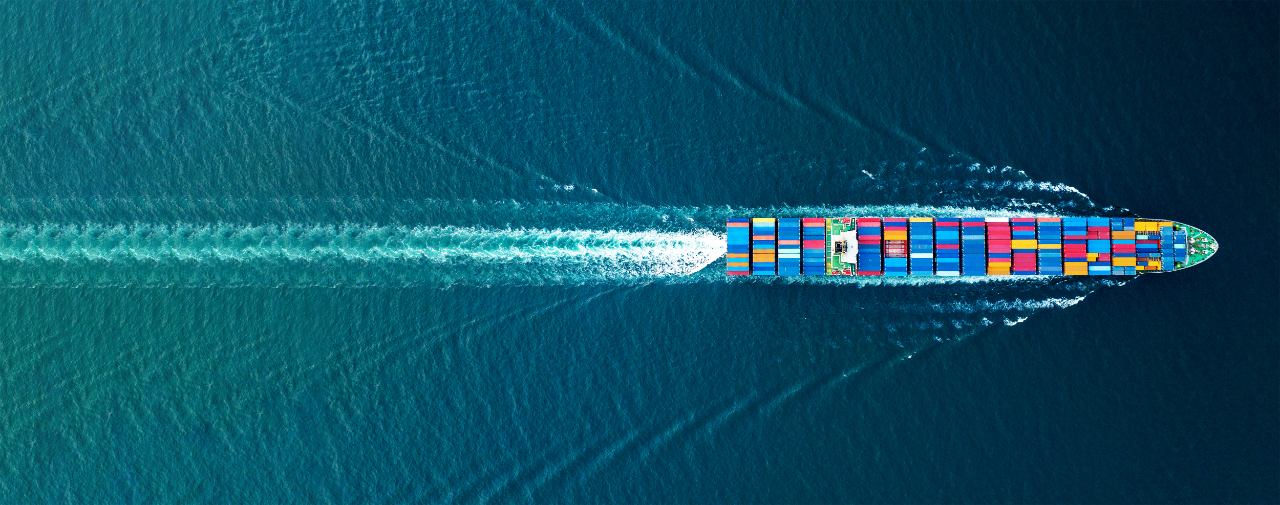
Green Methanol as a Sustainable Alternative
Rotterdam took a significant step in the summer of 2023 by starting to supply methanol as a regular fuel in maritime transport. Green methanol is a drop-in fuel, meaning modern dual-fuel marine engines can use it instead of conventional fossil fuels. Most importantly, the combustion of green methanol produces few or no emissions during its lifecycle, making it an ideal fuel for achieving a net-zero emissions scenario.
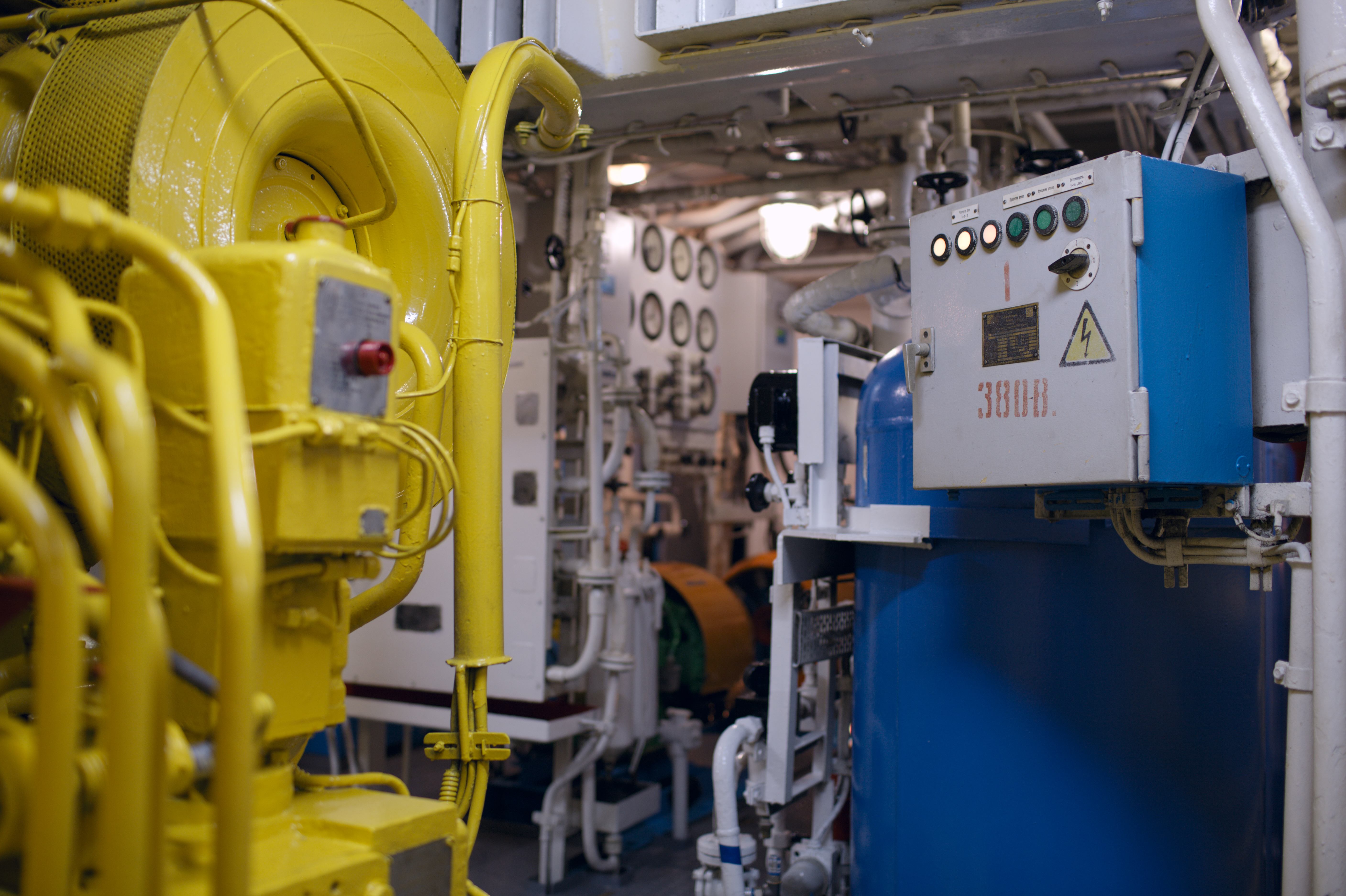
Image Copyright © 2023 Forestal del Atlantico,All rights reserved.
The Triskelion Project and Its Promising Impact
Triskelion, the most advanced green methanol project in Europe, is expected to begin production in 2026, generating 40 million tons of green methanol per year. Located in a strategic port, this project will supply vessels without raising the costs associated with transporting green methanol from production to the port of use. Additionally, Triskelion will produce green hydrogen at a competitive cost as it uses renewable energy sources and will generate it through electrolysis at the same port.
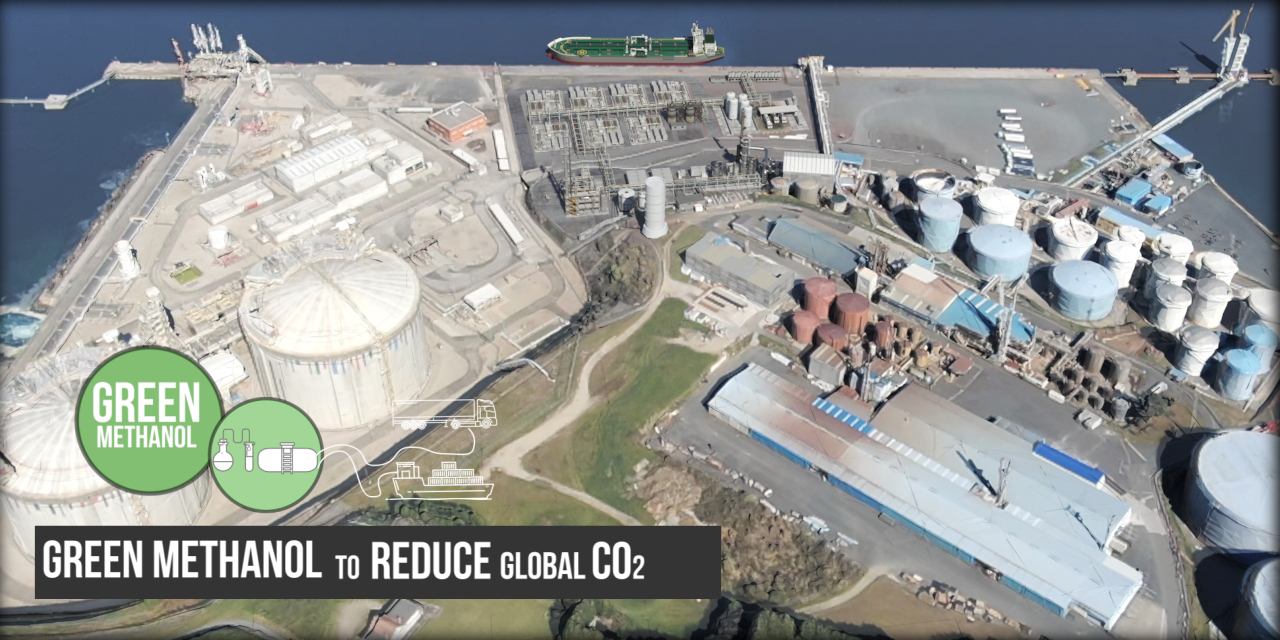
Image Copyright © 2023 Forestal del Atlantico,All rights reserved.
Changing Trends in the Maritime Industry
Leading companies such as Amazon, Ikea, Unilever, Michelin, DuPont, and Target have already committed to using carbon-neutral fuels in their maritime transport operations. Major container ship operators, such as A.P. Moller-Maersk and Evergreen, are also leading the transition by ordering more ships capable of using green methanol. This indicates that green methanol has become the preferred low-carbon emission fuel in the industry.
In 2023, twice as many green methanol-powered ships were ordered as in 2022, reaching 73 vessels, accounting for 10% of the total vessels ordered for maritime transport. This upward trend is expected to quadruple in 2024.
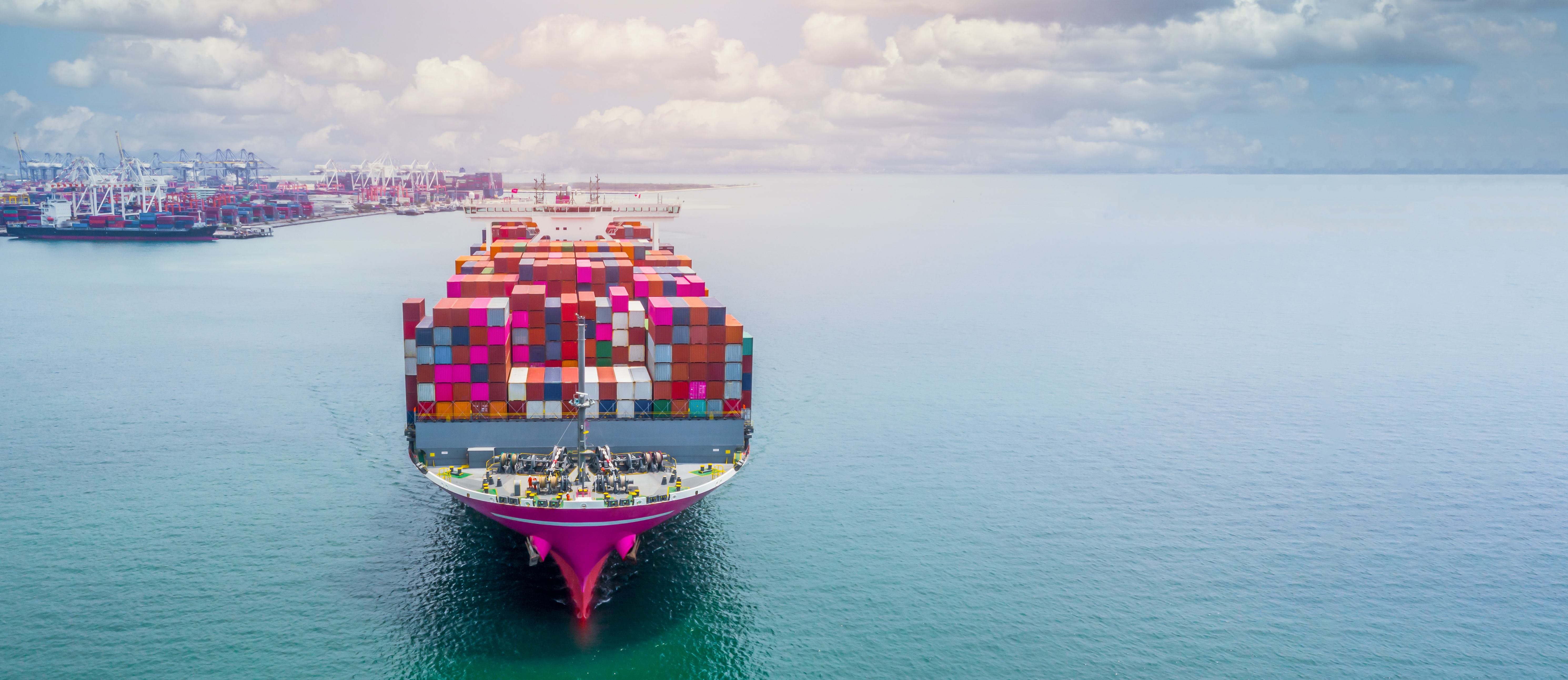
Image Copyright © 2023 Forestal del Atlantico,All rights reserved.
Navigating Europe Cost-Effectively and Environmentally Responsibly
One of the most significant challenges in the maritime transport industry is the imposition of fines on vessels not using green fuels for their carbon emissions. European regulations establish a gradual system in which a percentage must be paid for emissions. This further incentivizes the adoption of cleaner fuels.
Triskelion stands out in this context, as its strategic location in a port reduces the costs associated with transporting green methanol. This project is less than 20 miles from the ARA route (Amberes, Rotterdam, and Ámsterdam), one of the busiest maritime routes in Europe. It is estimated that this route sees a large number of container ships annually, consuming vast amounts of fuel. If all these vessels were to adopt green methanol, the industry's carbon footprint would be significantly reduced.
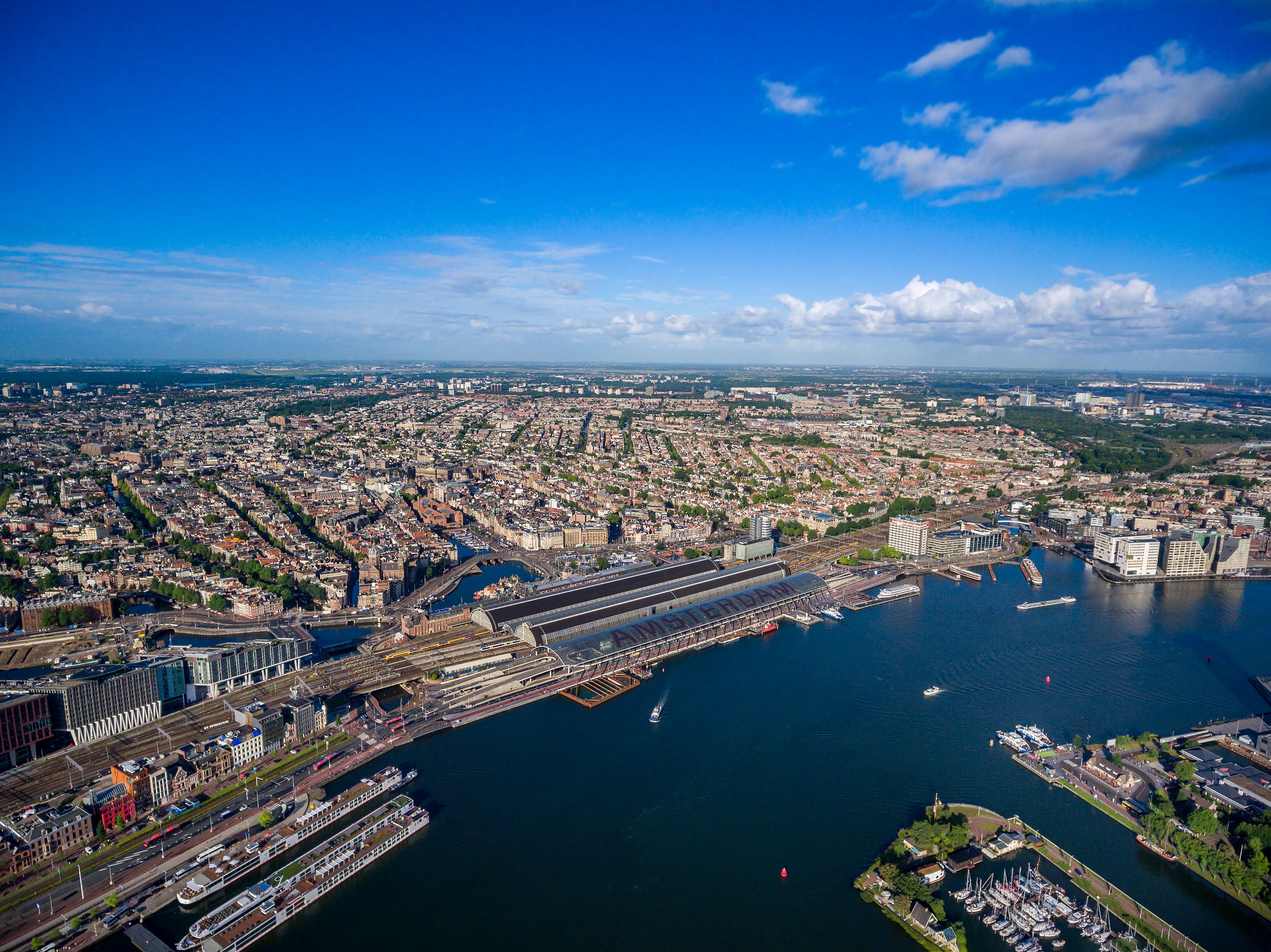
Amsterdam. Image Copyright © 2023 Forestal del Atlantico,All rights reserved.
Conclusion
Green methanol emerges as a key solution to reduce emissions in maritime transport and meet ambitious sustainability goals. The Triskelion project, with its green production in a strategic location, promises to be a pioneer in this revolution, providing cleaner and more sustainable fuels for the maritime industry and contributing to a greener and healthier future for our planet. Additionally, by reducing carbon emissions and leveraging regulations that penalize fossil fuels, Triskelion sets an example in the transition towards more sustainable maritime transport. reduced.

Image Copyright © 2023 Forestal del Atlantico,All rights reserved.
2023/09/27
Navegando Hacia un Futuro Sostenible
Metanol VerdE en el Transporte Marítimo
La lucha contra el cambio climático ha llevado a una búsqueda constante de alternativas más sostenibles en el transporte marítimo, una industria que contribuye significativamente a las emisiones de gases de efecto invernadero. En este contexto, el metanol verde ha emergido como una solución prometedora, y el proyecto Triskelion está a punto de marcar un hito en esta transición hacia un transporte marítimo más ecológico.
El Desafío de las Emisiones en el Transporte Marítimo
Según datos verificados, el transporte marítimo representa aproximadamente el 2,3% del total de las emisiones de CO2 a nivel global. España, la Unión Europea y otras partes del mundo establecen objetivos vinculantes para reducir las emisiones de gases de efecto invernadero, incluído ese significativo 2,3% del transporte marítimo. Entre estos objetivos se encuentra la reducción del 55% de las emisiones para la UE en 2030 y el aumento del consumo de energías renovables al 32%.

El Metanol Verde como Alternativa Sostenible
Rotterdam, en el verano de 2023, dio un paso significativo al comenzar a suministrar metanol como combustible en el transporte marítimo de manera regular. El metanol verde es un “drop-in” de combustible, lo que significa que los modernos motores marinos duales pueden utilizarlo en lugar de los combustibles fósiles convencionales. Lo más importante es que la combustión del metanol verde produce pocas o ninguna emisión durante su ciclo de vida, lo que lo convierte en un combustible ideal para alcanzar un escenario neto cero de emisiones.

Image Copyright © 2023 Forestal del Atlantico,All rights reserved.
El Proyecto Triskelion y su Impacto Prometedor
Triskelion, el proyecto de metanol verde en fase más avanzada de Europa, se espera que inicie su producción en 2026, generando 40 millones de toneladas de metanol verde al año. Ubicado en un puerto estratégico, este proyecto abastecerá a los buques sin elevar los costos asociados con el transporte de metanol verde desde su producción hasta el puerto de uso. Además, Triskelion producirá hidrógeno verde a un costo competitivo ya que usa fuentes de energía renovable y lo generará a través de electrólisis en el mismo puerto.

Image Copyright © 2023 Forestal del Atlantico,All rights reserved.
El Cambio de Tendencia en la Industria Marítima
Empresas líderes como Amazon, Ikea, Unilever, Michelin, DuPont y Target ya se han comprometido a utilizar combustibles neutros en carbono en sus operaciones de transporte marítimo. Grandes operadores de portacontenedores, como A.P. Moller-Maersk y Evergreen, también están liderando la transición al encargar más buques capaces de utilizar metanol verde. Esto indica que el metanol verde se ha convertido en el combustible preferido de baja emisión de carbono en la industria.
En 2023 se han encargado el doble de buques propulsados por metanol verde que en 2022, alcanzándose 73 buques, el 10% del total de buques encargados para transporte marítimo. Una tendencia al alza que se estima se quadriplique en 2024.

Image Copyright © 2023 Forestal del Atlantico,All rights reserved.
Navegando por Europa en coste y siendo responsables con el medio ambiente.
Uno de los desafíos más significativos en la industria del transporte marítimo es la imposición de multas a los buques que no utilizan combustibles verdes por sus emisiones de carbono. Las regulaciones europeas establecen un sistema gradual en el que se debe pagar un porcentaje por las emisiones. Esto está incentivando aún más la adopción de combustibles más limpios.
Triskelion se destaca en este contexto, ya que su ubicación estratégica en un puerto reduce los costos asociados con el transporte de metanol verde. Este proyecto se encuentra a menos de 20 millas de la ruta ARA (Amberes, Rotterdam y Ámsterdam), una de las rutas marítimas más transitadas en Europa. Se estima que por esta ruta pasan anualmente un gran número de portacontenedores, consumiendo enormes cantidades de combustible. Si todos estos buques adoptaran el metanol verde, se reduciría significativamente la huella de carbono de la industria.

Amsterdam. Image Copyright © 2023 Forestal del Atlantico,All rights reserved.
Conclusión
El metanol verde se presenta como una solución clave para reducir las emisiones en el transporte marítimo y cumplir con los ambiciosos objetivos de sostenibilidad. El proyecto Triskelion, con su producción verde en una ubicación estratégica, promete ser un pionero en esta revolución, proporcionando combustibles más limpios y sostenibles para la industria marítima y contribuyendo a un futuro más verde y saludable para nuestro planeta. Además, al reducir las emisiones de carbono y aprovechar las regulaciones que penalizan a los combustibles fósiles, Triskelion se sitúa como un ejemplo a seguir en la transición hacia un transporte marítimo más sostenible.

Image Copyright © 2023 Forestal del Atlantico,All rights reserved.